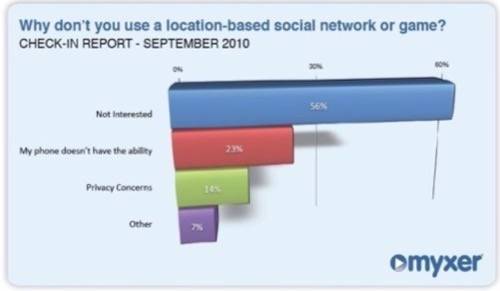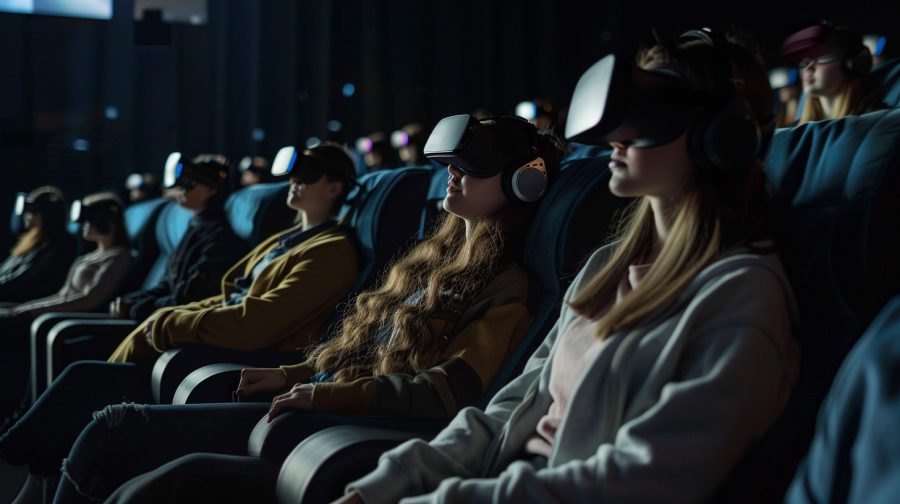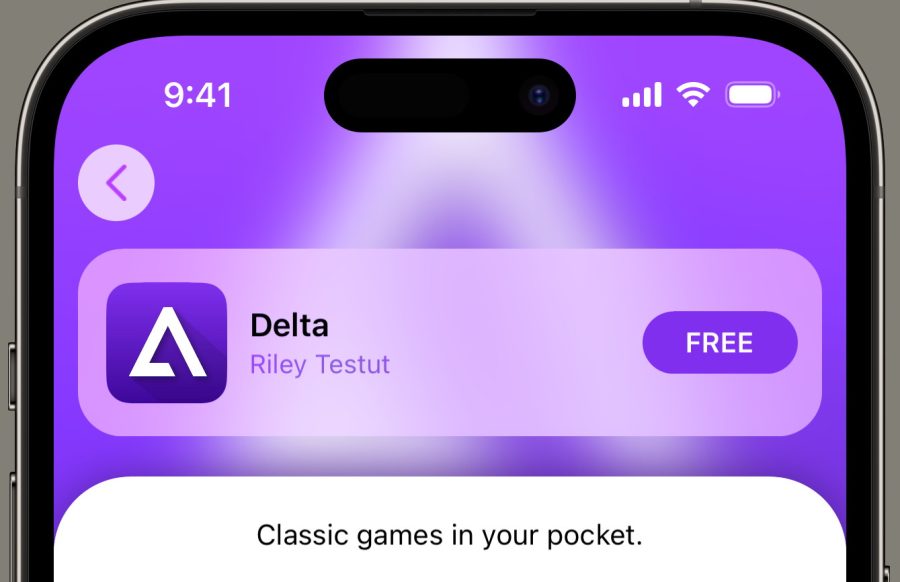A new report released today from mobile media provider Myxer examines the current trends among check-in applications, that is, the particular group of location-based mobile social networks that allow users to announce their arrival at a specific venue in return for rewards, coupons, deals or other offers. The company found that among the top mobile check-in applications, there was a clear leader: Booyah’s MyTown, a location-based game built around your own city’s local shops and businesses. MyTown is heavily favored by consumers, attracting 56% of the mobile audience that uses location-based applications such as these. Loopt was in second place, with 12% of users and Gowalla and Foursquare lagged even further behind, at only 8% each.
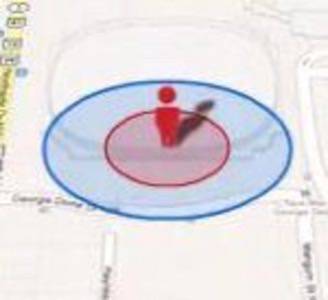
However, only 11% of mobile users are participating in the location-based social networking community, with the majority of mobile users claiming they’re simply “not interested” in these types services.
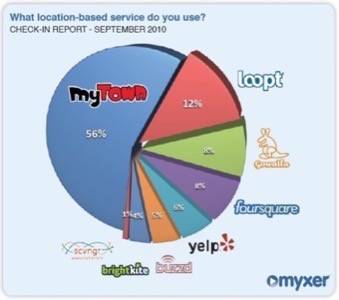
Myxer surveyed over 1,500 users in the U.S. and found that only 11% of the respondents used these location-based mobile applications. While that figure seems low, it’s actually several points higher than analyst firm Forrester Research’s report from July, which claimed that only 4% of U.S. adults used apps like these.
Forrester also claimed that only 1% of those who use location-based apps do so more than once per week. Myxer, however, found heavier usage: 31% of those surveyed claimed they check in a couple of times per week, 30% check in once per day, 26% check in every hour (who are these people, we wonder?) and 13% said they check in just a couple of times per month.
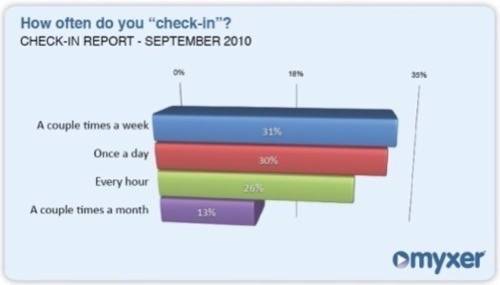
The new survey also found that the use of location-based services is increasing within its user base, with 74% saying they’ve been using the apps more often than before, while 27% said they’ve been decreasing their use. Nearly half (47%) of respondents say they use two-five location-based social networks, 45% say they use just one and only 8% say they use six or more.
Who Uses Location-Based Social Networks? Those Who Don’t Care About Privacy
Another interesting insight the data reveals is that the current users of location-based social networking services aren’t overly concerned with their privacy, it seems. A whopping 77% of the users reported that they check in the most often from their own home. Work, restaurants, the gym and events trailed with 16%, 3%, 2% and 2% respectively as other popular check-in venues.
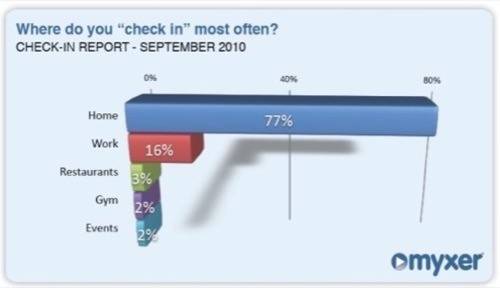
The users of these services are also surprisingly social, especially given the concerns over cyber-stalking that these networks could contribute to. In fact, 59% said that they have more friends on their location-based networks than on their traditional social networks like Facebook and Twitter; 41% said they have less. They also said their primary reasons for using the apps is to share their location with their friends (58%) and to find out where their friends are located (42%).
As for the demographic make up of the users, the largest group (30%) is 35-54 and the second largest group (22%) is 25-24, which seems to imply these networks are skewing older than Twitter and Facebook. Perhaps this is because using check-in services require users to move about around the city, a freedom that tweens and teens don’t often have to the same degree. Only 19% of location-based apps users are teens (13-17) and 22% are young adults (18-24). And those aged 55 and up make up 7% of users, according to the data collected.
Who Doesn’t Use Location-Based Networks and Why?
As for the large majority of mobile users – the 89% who say they don’t use check-in services at all – privacy, surprisingly, isn’t the top concern regarding their non-use of these services. Instead, 23% of users say they are unable to participate because their phone doesn’t have the ability to use location-based apps, which often exist solely as mobile applications on smartphones.
The larger majority (56%) say they’re simply “not interested.” That engagement hurdle is what makers of location-based applications and games are now working to overcome. By providing more rewards, coupons, discounts and deals while also offering spirited and fun gameplay, some of those 56% may eventually change their minds. As we’ve noted earlier, rewards are the key to location-based application success.
